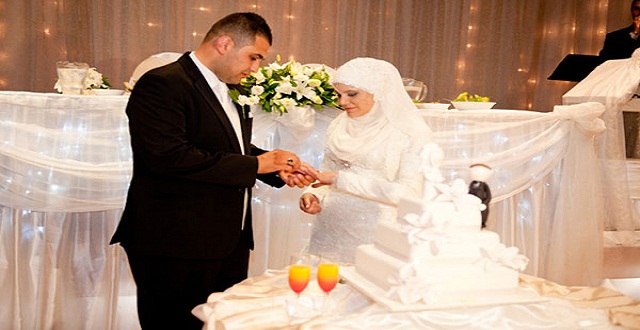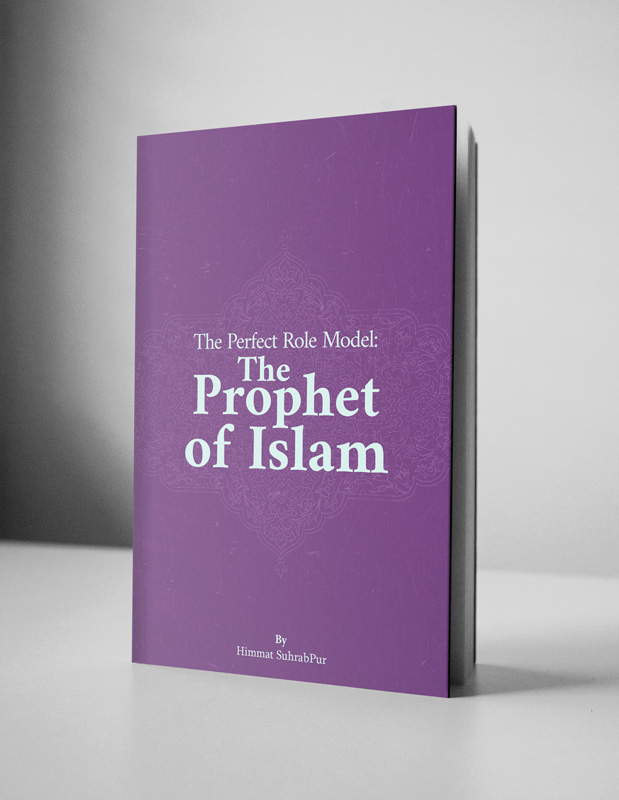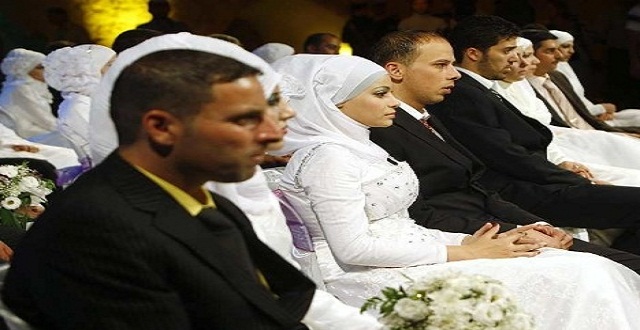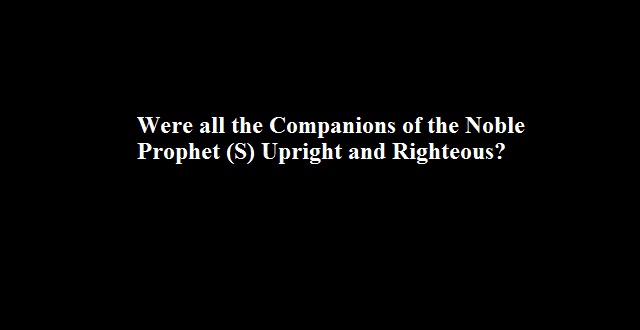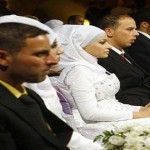Did temporary marriage exist during the time of the Noble Prophet ?
The general consensus of the Islamic scholars indicates that temporary marriage was lawful during the initial period of Islam and, in fact, the essentials of religion too emphasize this lawfulness – (and the difference of opinion that exists in connection with verse 24 of Suratul Nisa):
فَمَا اسْتَمْتَعْـتُمْ بِهِ مِنْهُنَّ فَآتُوهُنَّ أُجُورَهُنَّ فَرِيضَةً
“Then as to those whom you profit by, give them their dowries as appointed.”
as to whether or not it establishes the legitimacy of mut’ah does not, in any way, serve to oppose the incontrovertible nature of the statute. This is because even the opponents are of the belief that the legitimacy of this statute has been established by means of the sunnah of the Noble Prophet (s.a.w) – and the Muslims, during the initial stages of Islam, even acted upon this ruling. Also, the famous sentence that has been reported from ‘Umar:
مُتْعَتَانِ كَانَتَا عَلَى عَهْدِ رَسُولِ اللٌّهِ أَنَا مُحَرِّمُهُماَ وَ أُعَاقِبُ عَلَيْهِمَا مُتْعَةُ النِّسَاءِ وَ مُتْعَةُ الْحَجِّ.
“Two mut’ahs existed during the time of the Prophet of Allah and I prohibit them and shall punish (those who act upon them), (and these are) mut’ah of the women and Hajj of Tamattu’), is a clear proof of the existence of this statute during the period of the Noble Prophet (s.a.w); however, the opponents of this ruling claim that it was abrogated and prohibited later on.”26
Interestingly, the traditions which they present to substantiate their claims of abrogation are contradictory and inconsistent. Some traditions state that the Noble Prophet (s.a.w) himself abrogated this statute and as such, the nullifier of this ruling would be the sunnah of the Noble Prophet (s.a.w). Other traditions state that it was abrogated by the verse of Divorce:
لِعِدَّتِهِنَ إِذا طَلَّقْتُمُ النِّسَاءَ فَطَلِّقُوهُنَّ
“O Prophet! when you divorce women, divorce them for their prescribed time.”
However, it ought to be known that this verse has no connection with the issue under discussion since this verse deals with divorce whereas there is no divorce in a temporary marriage – the separation taking place when the term (of marriage) reaches termination.
On the one hand, it is conclusively and categorically known that this ruling was lawful during the time of the Noble Prophet (s.a.w) while on the other hand there is authentic evidence to prove that it had been abrogated. Thus, according to an indisputable law, proved in methodology, we shall judge that this statute continues to exist.
The well-known sentence of ‘Umar is also a clear testimony of the fact that this ruling had certainly not been abrogated during the period of the Noble Prophet (s.a.w).
It is quite evident that none, except the Noble Prophet (s.a.w), possesses the authority to abrogate laws and rulings, and it is only he (s.a.w), who can abrogate and annul certain laws in accordance with divine orders. After the Noble Prophet’s death, the door to abrogation of laws was completely closed or else every person, according to his individual reasoning, would seek to abrogate portions of the divine laws and consequently there would be no such thing as an eternal and everlasting Shari’ah. Fundamentally, individual reasoning vis-à-vis explicit sayings of the Noble Prophet (s.a.w) lacks validity and authenticity.
Significantly, in the book sahih Tirmidhi, which is one of well-known siHaH of the Ahlus Sunnah, and also from al-Daraqutni,27 we are informed of the following incident:
Once, an inhabitant from Syria approached ‘Abdullah b. ‘Umar and questioned him about Hajj-e-Tamattu’, whereupon he expressly declared it to be permissible. The man said: “But your father has prohibited it!” ‘Abdullah b. ‘Umar turned furious and said: “If my father prohibits it while the Noble Prophet (s.a.w) permits it, should I forsake the sacred sunnah of the Noble Prophet (s.a.w) and follow my father’s statements? Arise and go away from my presence!”28
Another tradition, possessing the same form as that seen in the above tradition, has also been reported from ‘Abdullah b. ‘Umar, but in connection with temporary marriage.29
It has been reported from the book ‘Muhadhirat’ of Raghib that one of the Muslims entered into a temporary marriage. He was asked: “Who informed you that it was legitimate?” He replied: ”’Umar!” Astonished, they asked him: “How is such a thing possible when ‘Umar has himself prohibited it and has even threatened to punish the people for it?” He said: “I too base my reasoning upon this, for ‘Umar had said: ‘The Noble Prophet (s.a.w) had permitted it but I prohibit it.’ I accept its legitimacy from the Noble Prophet (s.a.w) but shall never accept its prohibition from anyone else!”30
Another point that needs to be mentioned here is that those, who claim that this rule has been abrogated, face some serious problems:
Firstly: In numerous traditions from Sunni sources it has been explicitly stated that this ruling had not been abrogated during the life-time of the Noble Prophet (s.a.w) but, rather, its prohibition came into effect during the time of ‘Umar. Thus, the proponents of abrogation need to provide an explanation for all these traditions, which are twenty four in number. ‘Allamah Amini has mentioned them in detail in volume six of his book al-Ghadir and two examples of them are presented below:
1. It has been reported in sahih Tirmidhi that Jabir b. ‘Abdullah Ansari said: “During the time of the Noble Prophet (s.a.w) we used to easily enter into temporary marriage and this continued till ‘Umar totally prevented ‘Amr b. Harith from entering into it.”31
2. In the books Muwatta of Malik and Sunan Kubra of Behaqi it has been reported from ‘Urwah b. Zubair that one day, a lady by the name of Khaulah Bint Hakim approached ‘Umar and informed him that one of the Muslims, Rabi’ b. Umayyah, had committed mut’ah. Hearing this ‘Umar said: “Had I prohibited this act previously, I would have had him stoned (but now, from this very moment, I shall prohibit it).”
In the book Bidayah al-Mujtahid of Ibn Rushd al-Andulusi too we read that Jabir b. ‘Abdullah Ansari said: “Temporary marriage was customary and usual amongst us during the time of the Noble Prophet (s.a.w), during the caliphate of Abu Bakr and (the first) half of the caliphate of ‘Umar. Afterwards ‘Umar prohibited it.”
Secondly: The traditions that state that this ruling had been abrogated during the life-time of the Noble Prophet (s.a.w) are ambivalent and contradictory in nature. Some of them say that it was abrogated in the battle of Khaibar, some report it to have been abrogated on the day of the conquest of Makkah, some others specify that it was during the battle of Tabuk, while yet others declare that it took place during the battle of Autas, etc. Thus, all of these traditions, which advocate the abrogation of this ruling, appear to be fabricated as they differ so vastly from each other.
In view of what we have mentioned above, it becomes plain that the statement of the author of the commentary al-Manar, when he says: “Previously, in the third and fourth volume of the magazine al-Manar, we had expressly stated that it was ‘Umar, who had prohibited mut’ah, but later we happened to come across some traditions, which indicated that it had been abrogated during the time of the Noble Prophet (s.a.w) and not during the time of ‘Umar, and accordingly, we rectify our previous statements and seek forgiveness for it34 is a prejudiced declaration.
This is because vis-à-vis these contradictory traditions that declare the abrogation to have taken place during the time of the Noble Prophet (s.a.w), we have traditions, which expressly declare the ruling to have continued till the time of ‘Umar. Thus, neither is there a necessity to apologize nor a need to seek forgiveness; the evidences presented above indicate that it was the original declaration of the author that had been true and correct, and not his second one!”
It is evident that neither ‘Umar nor anyone else – not even the Imams of the Ahlul Bayt G, who are the genuine successors of the Noble Prophet (s.a.w) – can abrogate laws that had existed during the life-time of the Noble Prophet (s.a.w). Basically, abrogation after the death of the Noble Prophet (s.a.w) and the termination of revelation is absolutely meaningless and inconceivable. It is also a matter of immense astonishment that some individuals attribute the utterance of ‘Umar to his ‘individual reasoning’ (ijtihad), for ijtihad vis-à-vis ‘nass’ (explicit text of the Noble Prophet (s.a.w)) is neither permissible nor acceptable.

